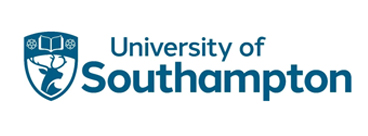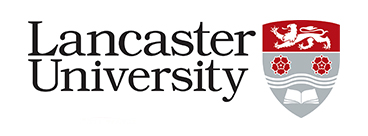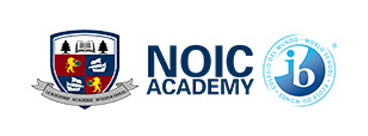海外本科申请悉尼大学
背景介绍
申请难点
留学规划与提升
录取专业:商科硕士(商业分析)
录取时间:2020年02月14日
奖学金:无
申请人语言成绩成功豁免
申请人GPA:87+
申请人毕业院校:奥本大学
申请人所学专业:
录取院校:悉尼大学
悉尼大学,澳大利亚第一所获得北美AACSB和欧洲EQUIS双重认证的高等商学院;
院校解读
留学方案
案例分析
大学课程设置如下:
Business Analytics
The units of study listed in the following table are those available for the current year. Students may also include any units of study, which are additional to those currently listed, which appear under these subject areas in the Business School handbook/website in subsequent years (subject to any prerequisite or prohibition rules).
Table of postgraduate units of study: Commerce
| Unit of study
|
Credit points
|
A: Assumed knowledge P: Prerequisites C: Corequisites N: Prohibition
|
Session
|
| Business Analytics
|
|||
| Achievement of a specialisation in Business Analytics requires 30 credit points from this table comprising:
|
|||
| (i) 6 credit points in foundational units of study
|
|||
| (ii) 24 credit points in elective units of study.
|
|||
| Units of study for the specialisation
|
|||
| Foundational unit of study
|
|||
| QBUS5001 |
6
|
A Students should be capable of reading data in tabulated form and working with Microsoft EXCEL and doing High School level of mathematics |
Semester 1 |
| Elective units of study
|
|||
| BUSS6002 |
6
|
A Basic knowledge of statistics, probability and linear algebra |
Semester 1 |
| INFS6018 |
6
|
A Understanding the major functions of a business and how those business functions interact internally and externally so the company can be competitive in a changing market. How information systems can be used and managed in a business. How to critically analyse a business and determine its options for transformation. (ii) Desirable Experience as a member of a project team.
|
Semester 1
|
| QBUS6310 |
6
|
P ECMT5001 or QBUS5001 or QBUS5002 |
Semester 2
|
| QBUS6320 |
6
|
A Basic Algebra, Probability, and Statistics |
Semester 1
|
| QBUS6810 |
6
|
P BUSS6002
|
Semester 1 |
| QBUS6820 |
6
|
A Knowledge of basic probability theory and familiarity with spreadsheet modelling |
Semester 2
|
| QBUS6830 |
6
|
A Basic knowledge of quantitative methods including statistics, basic probability theory, and introductory regression analysis. |
Semester 1 |
| QBUS6840 |
6
|
P (QBUS5001 or ECMT5001) and BUSS6002
|
Semester 1 |
| QBUS6850 |
6
|
P QBUS6810
|
Semester 1 |
| QBUS6860 |
6
|
A The unit assumes knowledge of statistics and confidence in working with data. |
Semester 1 |
Business Analytics
Achievement of a specialisation in Business Analytics requires 30 credit points from this table comprising:
(i) 6 credit points in foundational units of study
(ii) 24 credit points in elective units of study.
Units of study for the specialisation
Foundational unit of study
QBUS5001 Quantitative Methods for Business
Credit points: 6 Session: Semester 1,Semester 2 Classes: 1x 2hr lecture and 1x 2hr tutorial per week Prohibitions: ECMT5001 or QBUS5002 Assumed knowledge: Students should be capable of reading data in tabulated form and working with Microsoft EXCEL and doing High School level of mathematics Assessment: assignments (25%); mid-semester exam (25%); final exam (50%)
This unit highlights the importance of statistical methods and tools for today's managers and analysts and demonstrates how to apply these methods to business problems using real-world data. The quantitative skills that students learn in this unit are useful in all areas of business. Through taking this unit students learn how to model and analyse the relationships within business data; how to identify the appropriate statistical technique in different business environments; how to compute statistics by hand and using special purpose software; how to interpret results in the context of the business problem; and how to forecast using business data. The unit is taught through data-driven examples, exercises and business case studies.
Elective units of study
BUSS6002 Data Science in Business
Credit points: 6 Session: Semester 1,Semester 2 Classes: seminars: 3 hours per week x 13 weeks Prerequisites: QBUS5001 or QBUS5002 Assumed knowledge: Basic knowledge of statistics, probability and linear algebra Assessment: assessment 1 (25%); midterm exam (25%); final exam (50%)
Growing volumes of data and, more importantly, the computation power to analyse it are now widely recognised as key business assets. No single discipline has the tools to make the most of these assets. Instead successful "big data" capability requires (a) the ability to understand how data can (and often cannot) be used to generate new insights into substantive problems (b) knowledge of how data are generated and used and (c) the ability to understand connections between variables captured in data. This unit provides an overview of principles from the disciplines of Business Information Systems and Business Analytics, applied in the context of Marketing problems, relevant for using 'big data' in business planning, decision-making and operations.
INFS6018 Managing Business Intelligence
Credit points: 6 Session: Semester 1 Classes: 1 x 3hr seminar per week Assumed knowledge: Understanding the major functions of a business and how those business functions interact internally and externally so the company can be competitive in a changing market. How information systems can be used and managed in a business. How to critically analyse a business and determine its options for transformation. (ii) Desirable Experience as a member of a project team. Assessment: mid-semester exam (35%); project report (30%); project presentation (10%); reflective summary (25%)
Business Intelligence (BI), increasingly known as Business Analytics, is a major source of competitive advantage in the Information Age and is, therefore, a leading business priority globally. In recent times, this field has evolved from a technology topic to a management priority, creating an unprecedented demand for new management skills. Taking a business rather than a technology perspective, this unit covers all aspects of the enterprise BI ecosystem in the context of strategic and operational BI, including all five stages of BI evolution. Topics include assessment and management of organisational data quality, multidimensional data modelling and integration, management of structured and unstructured data (including those created by social media), business aspects of data warehousing, innovation through advanced analytics, BI-driven performance management, business process intelligence, active enterprise intelligence, and management of complex BI projects. Access is provided to the largest world-wide community of BI academics and industry practitioners called TUN (www.TeradataUniversityNetwork.com). The hands-on experience in using a commercial BI platform, combined with in-depth analytical skills, will enable students completing the unit to help any organization (regardless of its size and industry domain) to derive more intelligence from its data and compete on analytics. This unit does not require programming experience; it is suitable for both current and aspiring BI practitioners as well as general business practitioners from any functional area interested to learn how to start and lead BI-related initiatives.
QBUS6310 Business Operations Analysis
Credit points: 6 Session: Semester 2 Classes: 1 x 3hr class per week Prerequisites: ECMT5001 or QBUS5001 or QBUS5002 Prohibitions: ECMT6008 Assessment: group project (25%), individual Assignment 1 (10%), individual Assignment 2 (15%), final exam (50%)
Business operations are the activities that businesses carry out to create value. This unit provides the models needed to analyse business operations of a company or organisation and make management decisions on operational issues. It covers business operations in both manufacturing and service industries, looking at processes, supply chains and quality issues. Topics covered may include the modelling of manufacturing operations and related group technologies, the modelling of financial service operations (e.g. brokerage operations), and the operations implications of internet technologies.
QBUS6320 Management Decision Making
Credit points: 6 Session: Semester 1 Classes: 3hrs of classes (lecture/tutorial) per week Prerequisites: QBUS5001 or QBUS5002 Assumed knowledge: Basic Algebra, Probability, and Statistics Assessment: assignment 1 (25%), assignment 2 (25%), final exam (50%)
This unit introduces models and tools for decision analysis and their application in managerial settings. The unit focuses on the use of formal decision methods for management decisions in business. The main goal is to show how these decision models can improve the decision process by helping the decision maker to understand the structure of decisions; use subjective probabilities for measuring risk; analyse the sensitivity of decisions to changing decision parameters; quantify outcomes in accordance with risk attitudes, and estimate the value of information. Special attention is paid to informal interpretations of formal decision approaches.
QBUS6810 Statistical Learning and Data Mining
Credit points: 6 Session: Semester 1,Semester 2 Classes: 1x 2hr lecture and 1x 1hr tutorial per week Prerequisites: BUSS6002 Assessment: group project (30%); online quizzes (20%); final exam (50%)
It is now common for businesses to have access to very rich information data sets, often generated automatically as a by-product of the main institutional activity of a firm or business unit. Data Mining deals with inferring and validating patterns, structures and relationships in data, as a tool to support decisions in the business environment. This unit offers an insight into the main statistical methodologies for the visualization and the analysis of business and market data. It provides the tools necessary to extract information required for specific tasks such as credit scoring, prediction and classification, market segmentation and product positioning. Emphasis is given to business applications of data mining using modern software tools.
QBUS6820 Business Risk Management
Credit points: 6 Session: Semester 2 Classes: 1x 2hr class per week plus 1 x 1hr tutorial Prerequisites: ECMT5001 or QBUS5001 Assumed knowledge: Knowledge of basic probability theory and familiarity with spreadsheet modelling Assessment: measuring risk assignment (15%); mid-semester exam (25%); stochastic optimisation assignment (15%); final exam (45%)
This unit provides the basic knowledge and tools needed to understand and manage risk. It includes business cases to illustrate the nature of risk and risk management strategies. The main focus is on quantitative approaches to analysing risk through understanding the probability distributions involved. Topics covered include: Value at Risk calculations; Utility theory for decisions; Prospect theory for decisions under risk; Extreme value theory; Monte-Carlo simulation; Stochastic optimization; Robust optimization; Credit scoring; Real options.
QBUS6830 Financial Time Series and Forecasting
Credit points: 6 Session: Semester 1,Semester 2 Classes: 1 x 2hr lecture and 1 x 1hr tutorial Prerequisites: ECMT5001 or QBUS5001 Assumed knowledge: Basic knowledge of quantitative methods including statistics, basic probability theory, and introductory regression analysis. Assessment: Mid-semester test (20%), group assignment (40%), final exam (40%)
Time series and statistical modelling is a fundamental component of the theory and practice of modern financial asset pricing as well as financial risk measurement and management. Further, forecasting is a required component of financial and investment decision making. This unit provides an introduction to the time series models used for the analysis of data arising in financial markets. It then considers methods for forecasting, testing and sensitivity analyses, in the context of these models. Topics include: the properties of financial return data; the Capital Asset Pricing Model (CAPM); financial return factor models, with known and unknown factors, in panel data settings; modelling and forecasting conditional volatility, via ARCH and GARCH; forecasting market risk measures such as Value at Risk. Emphasis is placed on applications involving the analysis of many real market datasets. Students are encouraged to undertake hands-on analysis using an appropriate computing package.
QBUS6840 Predictive Analytics
Credit points: 6 Session: Semester 1,Semester 2 Classes: 1 x 2hr lecture and 1 x 1hr tutorial Prerequisites: (QBUS5001 or ECMT5001) and BUSS6002 Assessment: group assignment (30%); homework assignment (15%); mid-semester test (20%); final exam (35%)
To be effective in a competitive business environment, a business analyst needs to be able to use predictive analytics to translate information into decisions and to convert information about past performance into reliable forecasts. An effective analyst also should be able to identify the analytical tools and data structures to anticipate market trends. In this unit, students gain skills required to succeed in today's highly analytical and data-driven economy. The unit introduces the basics of data management, business forecasting, decision trees, logistic regression, and predictive modelling. The unit features corporate case studies and hands-on exercises to demonstrate the concepts presented.
QBUS6850 Machine Learning for Business
Credit points: 6 Session: Semester 1,Semester 2 Classes: 1x 2hr lecture per week (13 weeks) and 1x 1hr tutorial (lab) per week (12 weeks) Prerequisites: QBUS6810 Assessment: group project (25%); mid-semester test (25%); final exam (50%)
Machine Learning is a fundamental aspect of data analytics that automates analytical model building in modern business. In the big data era, managers are able to use very large and rich data sources and to make business decisions based on quantitative data analysis. Machine Learning covers a range of state-of-the-art methods/algorithms that iteratively learn from data, allowing computers to find hidden patterns and relationships in such data so as to support business decisions. This unit introduces modern machine learning techniques and builds skills in using data for everyday business decision making. Topics include: Machine Learning Foundation; Modern Regression Methods; Advanced Classification Techniques; Latent Variable Models; Support Vector Machines (SVM) and Kernel Methods; Artificial Neural Networks; Deep Learning; and Machine Learning for Big Data. Emphasis is placed on applications involving the analysis of business data. Students will practise applying machine learning algorithms to real-world datasets by using an appropriate computing package.
QBUS6860 Visual Data Analytics
Credit points: 6 Session: Semester 1,Semester 2 Classes: 13 interactive lectures x 2 hours each, plus 13 workshops driven by student work x 1 hour each, plus 10 week x 1 hour tutorials on software training (e.g. for Tableau, Gephi, Google Charts, Google Big Query) Prerequisites: QBUS5001 or QBUS5002 Assumed knowledge: The unit assumes knowledge of statistics and confidence in working with data. Assessment: Weekly assignments (20%), group projects (40%), final exam (40%)
Accurate and effective analysis of data is a crucial skill in today's data-rich business environment. Visual Data Analytics (VDA) is an indispensable scientific tool for analysing all sorts of business-related data and, in particular, complex high-dimensional data. Applications include the visualisation of financial statements, capital market data, marketing data, supply chain data and many others. VDA has the ability to encode vast amounts of information into a small space that can be then intuitively interpreted for decision-making. This unit draws upon statistics, computer science, behavioural psychology and information design for visualising numerical and text data. It presents statistical and data analysis methods that are necessary for description, exploration, inference and diagnosis using data reduction, visual mining, smoothing, clustering and validation techniques. Upon completion of the unit, students should be proficient in producing high integrity visuals that enable fast and precise business decision-making. Students will also learn about the limitations of visual perception and how to design powerful visuals that can tap into our natural cognitive predisposition in favouring visual types of information.
同时其他方向的专业还可以选择
What you'll study
After completing your foundational units, the program allows you to choose up to two areas of specialisations.
Core units of study
- Business Insights
- Succeeding in Business
Foundational units of study
- Accounting Principles
- Capital Markets and Corporate Finance
- Digital Business Foundations
- Foundations of Supply Chain Management
- Global Business
- Legal Environment of Business
- Management and Organisations
- Marketing Principles
- Microeconomics for Business
- Project Management
- Quantitative Methods for Business
- Strategy, Innovation and Entrepreneurship
Areas of specialisation(最多可以同时修2个专业)
· Accounting
· Business Analytics
· Business Economics
· Business Information Systems
· Finance
· Logistics and Supply Chain Management
· Marketing
· People, Management and Organisations
就业方向如下Career pathways
Sydney Master of Commerce graduates will acquire the skills and knowledge to pursue high-level positions in industry or government, in areas relevant to their specialisations. For example, the degree can prepare you for positions in accounting, marketing or other specialist fields. It also gives you a thorough understanding of commerce for use in many business fields.

















